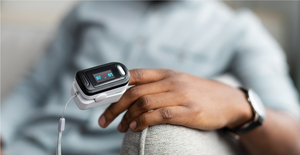Find Hepatitis test
in Tulsa, OK.
Own a clinic? Add your location.
Help patients book appointments with you on Solv. It's free!
6 instant-book locations

Xpress Wellness Urgent Care, Tulsa Hills
Xpress Wellness Urgent Care

Xpress Wellness Urgent Care, Glenpool
Xpress Wellness Urgent Care

Xpress Wellness Urgent Care, Broken Arrow
Xpress Wellness Urgent Care

Xpress Wellness Urgent Care, Sapulpa
Xpress Wellness Urgent Care

Xpress Wellness Urgent Care, Collinsville
Xpress Wellness Urgent Care
Access Medical Centers, Tulsa (E 81st)
Access Medical Centers

Just Kids Pediatrics, Tulsa Midtown Urgent Care and Primary Care
Just Kids Pediatrics
Warren Clinic Urgent Care, Springer
Warren Clinic Urgent Care
St. John Clinic Urgent Care
St. John Clinic Urgent Care

My Doctor Urgent Care
My Doctor Urgent Care
Warren Clinic Urgent Care, South Memorial
Warren Clinic Urgent Care
MedWise Urgent Care
MedWise Urgent Care
MedWise Urgent Care, Coweta
MedWise Urgent Care
Own a clinic? Add your location.
Help patients book appointments with you on Solv. It's free!
About Hepatitis test
Who should get tested for hepatitis?
According to the Centers for Disease Control and Prevention (CDC), anyone who has been exposed to blood or body fluids of an infected person should get tested for hepatitis. This includes individuals who have shared needles or other drug-injecting equipment, had unprotected sex, or had a tattoo or piercing with unsterilized tools. Additionally, people born to a mother with hepatitis, healthcare workers, and those who have lived with a person with chronic hepatitis should also consider testing.
Importance of getting tested
Hepatitis, a viral infection that causes liver inflammation, can lead to serious health issues if left untreated. Early detection through testing is crucial to prevent the spread of the virus and to start treatment promptly. According to the CDC, chronic hepatitis can lead to liver cirrhosis, liver cancer, or liver failure, emphasizing the importance of early detection and treatment.
Hepatitis testing options in Tulsa, OK:
Urgent care and walk-in clinics
Urgent care and walk-in clinics are convenient options for hepatitis testing in Tulsa. For instance, Access Medical Centers, with locations on S Garnett Rd, E 81st St, and S Utica Ave, offer testing services. These centers are highly rated and provide same-day and next-day appointments through Solv's website and mobile app.
Primary care providers
Primary care providers are another excellent resource for hepatitis testing. They can provide personalized care and follow-up treatment if needed.
Free STD testing and community health centers
Free STD testing and community health centers in Tulsa also offer hepatitis testing. These centers provide affordable testing options, particularly for uninsured or underinsured individuals.
At-home testing
For those who prefer privacy or cannot visit a clinic, at-home testing kits are available. These kits can be ordered online, and the samples can be sent back to a lab for testing.
Prevalence of hepatitis in Tulsa
While specific data for Tulsa is not readily available, the CDC reports that Oklahoma has a higher prevalence of hepatitis compared to the national average. This underscores the importance of regular testing, particularly for individuals in high-risk groups.
Risk factors related to hepatitis in Tulsa
Risk factors for hepatitis in Tulsa mirror those at the national level. These include unprotected sex, sharing needles, and exposure to infected blood or body fluids. Additionally, individuals with tattoos or piercings done with unsterilized tools are at increased risk.
Other STDs in Tulsa
In addition to hepatitis, other STDs such as gonorrhea, chlamydia, HIV, and syphilis are also prevalent in Tulsa. Similar to hepatitis, these diseases can be asymptomatic, making regular testing crucial for early detection and treatment.
Solv has strict sourcing guidelines and relies on peer-reviewed studies, academic research institutions, and medical associations. We avoid using tertiary references.
Related Searches
DOT Exam in Tulsa
Ear Wax Removal in Tulsa
Sports Physicals in Tulsa
A1C Test in Tulsa
Allergy Testing in Tulsa
Basic Metabolic Panel in Tulsa
CMP Test in Tulsa
Diabetes Test in Tulsa
Diagnostic Test in Tulsa
H Pylori Test in Tulsa
Hepatitis test in Tulsa
Lab Tests in Tulsa
Mono Test in Tulsa
Pregnancy Test in Tulsa
Pulmonary Function Test in Tulsa
RSV Test in Tulsa
STD Testing in Tulsa
Strep Test in Tulsa
TB Test in Tulsa
Thyroid Test in Tulsa
Vitamin D Test in Tulsa
Aetna Urgent Care
Blue Cross Blue Shield Urgent Care
Cigna Urgent Care
COVID-19
Flu
United Health Urgent Care
» All services in TulsaFind hepatitis test
Nearby cities
Everyday Healthcare, Simplified
Expert advice to help you live your best life







